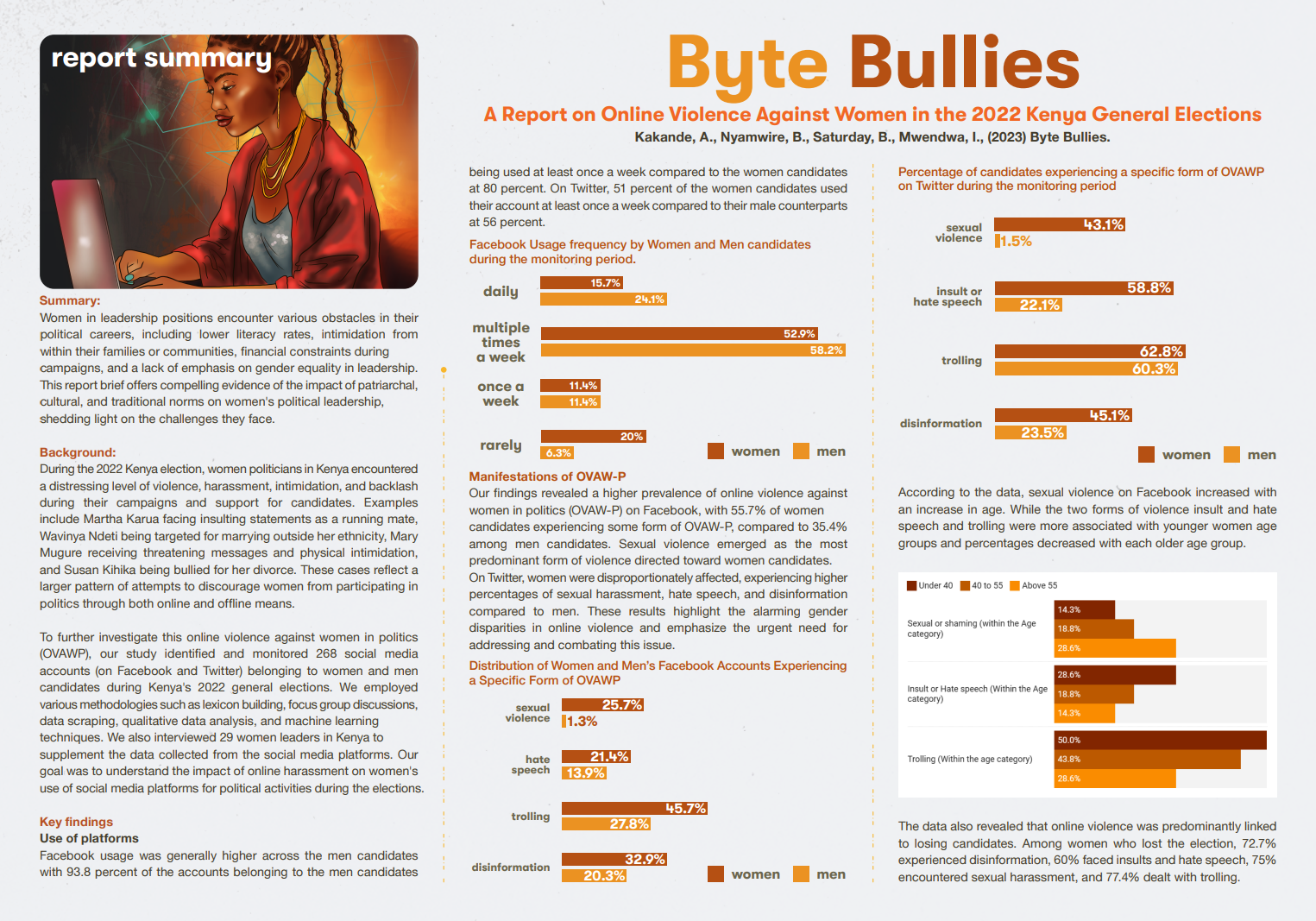Byte Bullies
The malignant influence of social media, as a ubiquitous and powerful medium of communication in countries all over the world, has brought about a growing era of challenges such as hate speech, online violence, fake news, and other forms of harmful content perpetuated by online bullies hence forth referred to as Byte Bullies. From the physical world to the digital realm, gender-based discrimination persists and thrives through malignant online practices. Kenya is no exception, as online harassment targets both prominent women and everyday social media users. These harmful behaviors are becoming all too common in our online spaces, perpetuated by social, economic, cultural, and political structures that echo through the medium of digital networks. In order to further understand these malignant practices, we conducted a comprehensive study that tracked and analyzed the online activities of over 250 women and men candidates for political office on Twitter and Facebook during the 2022 Kenya general elections specifically, during the campaign and election period. Our methodologies encompassed a range of techniques, including lexicon-building focus group discussions, data scraping of publicly available profiles, qualitative data analysis, and the development of a Machine Learning model capable of identifying and categorizing instances of online violence and hate speech in both English and Swahili.

